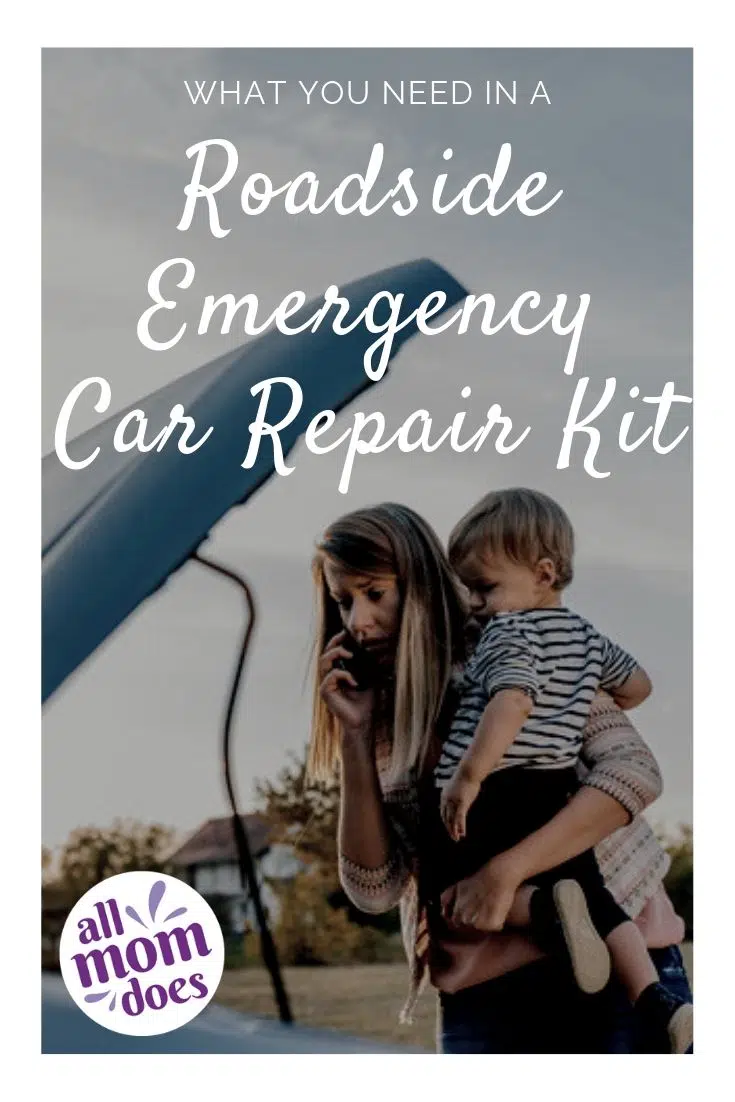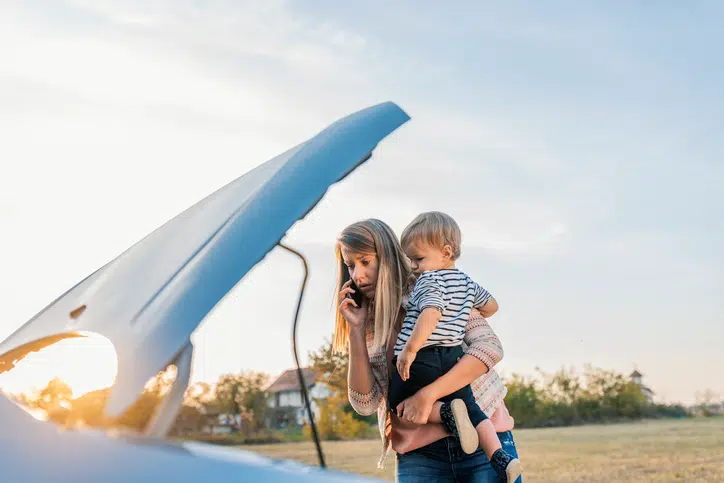I love a good road trip, and I’m not alone. According to AAA over 50 million Americans will take a road trip this year, making it the top-ranking family vacation in the country.
Before embarking on a road trip there’s a lot of prep work that needs to be done to ensure a smooth journey, but it involves far more than giving your vehicle a once-over and booking your motel rooms along the route. You should also assemble a roadside emergency kit that, in the event of a breakdown, can at least get your car up and running until you reach the next service station.
SEE ALSO: Ten Things You Need to Check Before Heading Out on Your Next Road Trip
So to plan for some of the most common pitfalls associated with road tripping, here’s what you need to bring with you to make sure your vacation is memorable for all the RIGHT reasons.
Spare Tire: A flat tire is one of the most common reasons for vehicle breakdown. You’ve probably already got a spare tire in your car, but when was the last time you checked it? Before you head out, check to make sure your spare tire is in usable condition and that your jack and lug wrench are there as well. Consider practicing changing your tire in your driveway. It’s not hard to do, but knowing you can do it before you head out will give you a boost of confidence. It will also let you know if you have locking lug nuts on your car that you need a key to remove.
Fix-a-Flat: You can plug small leaks in your tire.
Portable Air Compressor/Pump: This plugs into your car’s 12V socket (cigarette lighter) and allows you to add air to your tires. BONUS: You can use it at your destination to blow up your air mattress or pool floatie.
Leak Sealant/Radiator Stop Leak: You don’t want to mess with your radiator. A leak sealant will allow you to fix a small leak roadside.
Distilled Water: If your radiator runs dry, a gallon of distilled water will help you get to civilization where you can get the repair you need.
Emergency Heater Hose Repair Kit: To repair the radiator hoses if they crack.
Serpentine Belt: If this breaks, you’re pretty much dead in the water. Buy a replacement and bring it with you, just in case.
Quart of Oil: Always good to have an extra quart to help you limp along if you discover an oil leak at an inconvenient time.
Basic Tool Kit: You don’t have to bring everything, but just bring a basic set of tools that you can use in the event of roadside repair.
Breaker Bar or Lead Pipe: To give you more leverage on some of your tools, since many of the bolts will probably be pretty tight.
WD-40 or Penetrating Lubricant: To break down corrosion on bolts and help loosen them up.
Gas Can with 1-2 gallons of Gas: Just in case you miscalculate and run out of gas on the road.
Jumper Cables: In case your battery dies.
Road Flares or a Reflective Warning Triangle: To keep you visible and safe while you’re on the side of the road.
Duct Tape: Because you never know what might fall off or break, and duct tape can get you running in a pinch.
In addition to these items to help with almost any roadside repair, there are a few other things you should bring on your family road trip.
Detailed, Printed Itineraries: Everything is on your phone these days, but if you’re on a long road trip to remote locations it’s entirely possible you won’t be able to access a network and download maps or directions. Always have a printed copy of your route to refer to in case of emergency.
First Aid Kit: Just in case – make sure you’ve got the basics in case someone needs medical attention!
Food: Let’s be honest. If this is a family road trip, you’ve probably packed plenty of snacks, so planning for emergency food is basically already done for you.
Roadside Assistance Membership: Here’s the deal. We don’t have one of these regularly. But when we plan road trips, you bet I’m signing up. It’s basically a hedge against Murphy’s Law – if we didn’t have it, something would happen that made us wish we did. And once we’ve got the protection in place, we probably won’t need it because…that’s just how life goes. But the peace of mind is worth the money, and if you’re heading on any type of road trip I strongly recommend signing up for roadside assistance and knowing what your plan covers. If you have a travel trailer, you’ll probably need an additional plan to cover towing it in the event of a breakdown. And having coverage is meaningless if you don’t know how to access it, so always keep the phone number and your membership number handy in case you need it.
RELATED:
Ten Things You Need to Check Before Heading Out on Your Next Road Trip
The Ultimate Olympic Peninsula Road Trip Itinerary
Washington Waterfalls Road Trip
Road Tripping with Kids? Check Out This Hilarious Parody
The Ultimate Camping Checklist for Families













